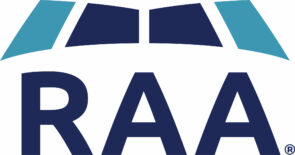
5 WAYS TO AVOID IDENTITY THEFT AT TAX TIME
- Posted by Michael Kane, CFP®
- On March 13, 2017
- IRS, safe, scams, tax
It is a great time of year to revisit your financial and investment plans as you prepare to file your annual tax returns. Unfortunately, it’s also a time of year in which identity thieves target unsuspecting taxpayers.
One of the most common thefts committed around tax time involves the filing of fraudulent refund claims using someone else’s information. Needless to say, if you fall victim to this crime, it could cost you thousands of dollars and result in months of time spent communicating with the IRS to correct.
Here are five ways to help protect your identity at tax time.
1. KEEP YOUR DOCUMENTS SECURE
It may be tempting to carry your Social Security card or Individual Taxpayer Identification Number (ITIN) in your wallet along with your driver’s license and credit cards for convenience, but it’s not a good idea. To protect your identity, you should keep these documents secure at all times, and avoid carrying them with you unless it’s absolutely necessary.
2. DON’T GIVE OUT YOUR SSN FREELY
Most of us are accustomed to providing our Social Security Number (SSN) or Individual Taxpayer Identification Number (ITIN) for a variety of reasons, such as during doctor visits or to companies with whom we do business. You might even catch yourself completing forms without thinking twice about it. However, you don’t have to give someone your SSN or ITIN just because they ask. Be vigilant about guarding your information and make sure that anyone asking for it is a legitimate entity with a valid reason for requesting it.
3. RESEARCH YOUR TAX PREPARER AHEAD OF TIME
Whether it’s your CPA or another tax professional, the person preparing your taxes will have access to extremely sensitive and personal financial data. As such, it’s critical to work with someone you can trust in this capacity. Tax professionals themselves can sometimes be targeted by identity thieves seeking to steal their clients’ information, so care and professionalism on the preparer’s part is a must.
4. DON’T USE UNSECURED WIFI TO FILE TAX RETURNS
The convenience of free Wifi has spread to coffee shops, fast food restaurants, airports, and many other public buildings. While it’s fine to use public Wifi to quickly access internet sites, you should never transmit confidential information such as a tax return or your banking profile over such a connection.
Hackers now take advantage of widely available free online tools to steal login credentials or take over active sessions with your bank or credit card company. The damage they are able to do in a very short amount of time is tremendous.
5. BEWARE OF FAKE IRS PHONE AND EMAIL SCAMS
While phone and email scams have been around since the advent of telephones and the internet, recent years have seen a marked increase in IRS-related schemes. One of the most popular methods is the use of an official-looking IRS email address to “phish” for credit card numbers or confidential tax data.
The IRS will never initiate contact or solicit data through email, they will always use traditional certified mail. If you receive an email from someone claiming to be with the IRS, especially unsolicited, don’t complete any form or give them any personal information.
There’s no question that technology has made life more convenient. The ability to handle complex transactions with a few keystrokes can make us complacent about the safety and security of our accounts and personal information. The first step to protecting yourself during tax season, and any other time, is being mindful and aware so that you avoid the common mistakes that make you an easier target for identity theft.
To discuss other ways to keep your financial information secure, request a call to speak with a certified advisor at RAA.
Disclaimer: This blog is intended for informational purposes only and should not be construed as individual investment advice. Actual recommendations are provided by RAA following consultation and are custom-tailored to each investor’s unique needs and circumstances. The information contained herein is from sources believed to be accurate and reliable. However, RAA accepts no legal responsibility for any errors or omissions. Investments in stocks, bonds, and mutual funds may increase or decrease in value. Past performance is no guarantee of future results. Any of the charts and graphs included in this blog are not recommendations for the purchase and sale of any security.



0 Comments